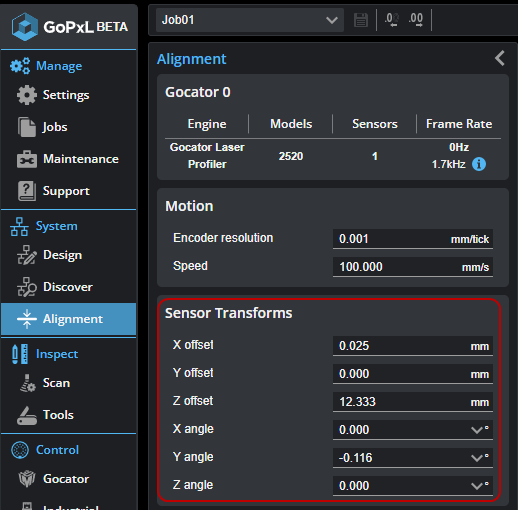Transformations
The transformation values determine how data is converted from unaligned coordinates to aligned coordinates (for an overview on coordinate systems, see Coordinate Systems). Transformation values are set automatically when you align a sensor using an alignment routine on the System > Alignment page.


|
If you perform an alignment using the Surface Align Wide or Surface Align Ring tools, these values are not updated. For more information, see Aligning Sensors to 6 Degrees of Freedom. |
| Parameter | Description |
|---|---|
| X Offset |
Specifies the shift along the X axis. |
|
Y Offset |
Specifies the shift along the Y axis. |
| Z Offset |
Specifies the shift along the Z axis. A positive value shifts the data toward the sensor. |
| X Angle | Specifies the tilt around the X axis. |
| Y Angle | Specifies the tilt around the Y axis. |
| Z Angle | Specifies the tilt around the Z axis. |
When applying the transformations, the data is first rotated around X (clockwise, with the X axis toward the viewer), then Y (counterclockwise), and then Z (clockwise), and then the offsets are applied.

|
Setting Angle X or Angle Z, and to a lesser extent Y Offset, to a non-zero value increases CPU usage when scanning, which reduces the maximum scan speed. |

|
Artifacts may appear in scan data when Angle Z or Angle X is set to a non-zero value if encoder trigger spacing is set too high (resulting in a low sampling rate). For more information on trigger spacing, see Trigger Settings. |